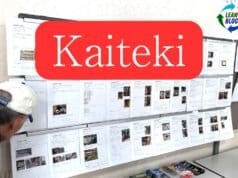My Way News – Airlines slow down flights to save on fuel
I'm just thrilled anytime I see an example of an airline making a process improvement (a “kaizen” if you will) instead of their usual game plan of whining, slashing employee pay, or cutting corners.
Drivers have long known that slowing down on the highway means getting more miles to the gallon. Now airlines are trying it, too – adding a few minutes to flights to save millions on fuel.
Southwest Airlines started flying slower about two months ago, and projects it will save $42 million in fuel this year by extending each flight by one to three minutes.
On one Northwest Airlines flight from Paris to Minneapolis earlier this week alone, flying slower saved 162 gallons of fuel, saving the airline $535. It added eight minutes to the flight, extending it to eight hours, 58 minutes.
That meant flying at an average speed of 532 mph, down from the usual 542 mph.
This is a simple kaizen we can ALL apply. Instead of just whining about high gas prices, drive slower, ease up on the “rabbit starts,” and keep your tires at the proper air pressure. To learn more about mileage improvement tips, click here.
Subscribe via RSS | Lean Blog Main Page | Podcast | Twitter @MarkGraban
Please scroll down (or click) to post a comment. Connect with me on LinkedIn.
Let’s work together to build a culture of continuous improvement and psychological safety. If you're a leader looking to create lasting change—not just projects—I help organizations:
- Engage people at all levels in sustainable improvement
- Shift from fear of mistakes to learning from them
- Apply Lean thinking in practical, people-centered ways
Interested in coaching or a keynote talk? Let’s start a conversation.










It seems this topic has been all over the news, and people’s minds lately.
Personally, I’ve upped my mpg by 5 city and 10 highway on the past two tanks simply by shifting at about 2,000 rpm instead of 3 or 4.
Obviously, this only works on a manual, but it’s worth noting.
Also, I’ll confess, I still gun the gas and engage the turbo occasionally, responsibility only takes one so far.
Hmm… still thinking about this one. That kaizen created value… to the company. But to the customer? I fly to get places quicker, so is 8 minutes slower increase my value? Of course I have other values that include conservation and environmental awareness. But I’d rather see an airline save a few bucks by not investing in silly “red carpets” for the first class folks to walk over when boarding…
Kevin – it doesn’t “create value” but sometimes an organization has to cut costs, hopefully in a way that doesn’t harm the customer at least. If you’re flying trans-atlantic, 8 minutes is a pretty small percentage. I’d personally be willing to make that tradeoff.
Agreed on other “features” that don’t “add value” like the red carpets.
I have slowed down and used classic hypermiling techiques and see close to 40mpg with my 2003 civic. I carpool with a person who drives a prius and she is only getting 42mpg. I paid a third of the price of a new pruis and getting 90% of the mpg with just changing my behavoir. Change is good.